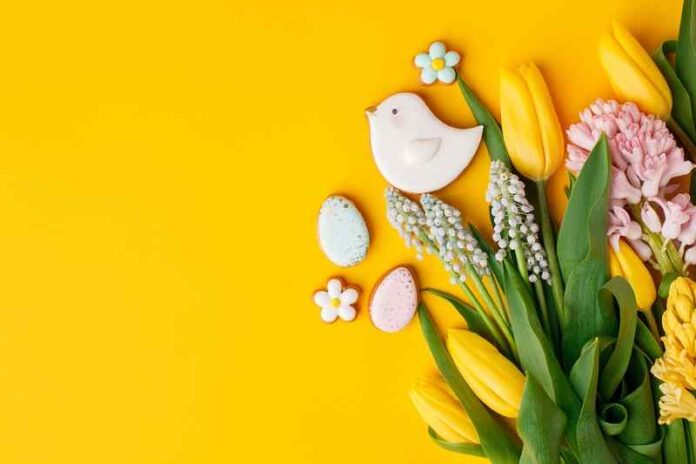
Easter is best known for its baskets and egg hunts, but there’s so much more to this holiday than that. Learn the history of Easter, what the symbolism of Easter means and how different cultures celebrate it around the world!
How different cultures celebrate Easter around the world
Different cultures celebrate Easter in different ways, with different customs and rituals. For example, Japan celebrates Easter by eating rice cakes called “Kagami mochi”. In America, it is common to put together baskets full of candy, toys, eggs, and many other things. You can find the best easter gifts all over the world, and each has its unique touch and symbolism. In Denmark, people celebrate Easter by decorating eggs with the colors of springtime – yellow for happiness and new life and green for hope.
And in Mexico, they honor their patron saint, Jesus Malverde, with a parade and special Mass. So, what is your favorite Easter tradition? Baskets and eggs hunts? Church services? Spending time with family and friends?
Whatever your favorite way to celebrate, Easter is a holiday that is rich in history and symbolism. So take some time to learn more about it and enjoy all the amazing traditions that come with it!
The History and symbolism of Easter Day
Easter is a Christian holiday that celebrates the resurrection of Jesus Christ. It is celebrated on the first Sunday after the first full moon following the vernal equinox. Easter is one of the most important holidays in Christianity and it marks the end of Lent, 40 days of fasting and reflection.
The Symbolism of Easter is very important, it is a time of rebirth and new beginnings. It commemorates the day that Jesus resurrected from the dead and it is often seen as a symbol of hope and salvation. The Easter bunny, eggs, and other Easter traditions are all symbols of new life.
Where did dyeing Easter eggs originate from?
Easter eggs are a popular tradition around the world, but where did they come from? The history of Easter eggs is a bit murky, but there are several theories about how they began. One theory suggests that the custom of dyeing eggs originated in ancient Persia, where people would dye eggs with natural dyes and then give them as gifts to friends and family.
Another theory suggests that the Easter egg tradition began in Europe, where eggs were often used as a symbol of fertility and new life. Whatever the case may be, the Easter egg is now a popular symbol of new beginnings and resurrection.
Easter baskets are another popular tradition around the world, but where did they come from? One theory suggests that the custom of Easter baskets began in medieval Europe, where people would give each other baskets filled with food and other treats.
Another theory suggests that the Easter basket tradition began in America, where it was common to put together baskets full of candy, eggs, and other Easter goodies.
When was the first Easter egg hunt?
The Pennsylvania Dutch started the Easter egg hunt in the 1700s. They have a tradition of hiding eggs for children to find on Easter morning, which is called an “Osterhase”.
In America, this tradition was picked up by other churches and became popularized as part of the religious service. The first recorded mention of a church-sponsored Easter egg hunt was in 1874. And then the first easter egg hunt was in 1874.
A religious group called the Order of The Golden Cross started the tradition and it quickly spread to other churches. It’s a lot easier now than back then, with most people hunting for eggs on Sunday morning before church services.
The Easter egg hunt is an age-old tradition that has been passed down for generations. It is a symbol of new beginnings and hope – the eggs represent life, fertility, and new beginnings. There are many different ways to celebrate Easter, but the egg hunt is one of the most popular traditions around the world. So grab a basket and get hunting!
What are some of your favorite Easter traditions? Decorating eggs and putting together baskets full of gifts? Spending time with family and friends? Whatever your favorite way to celebrate, Easter is a holiday that is rich in history and symbolism.
So take some time to learn more about it and enjoy all the amazing traditions that come with it! Happy Easter!

